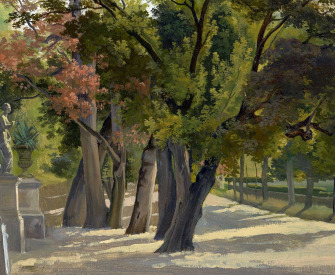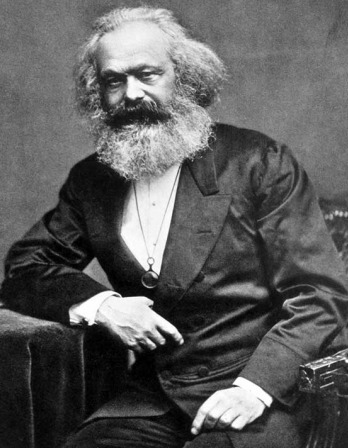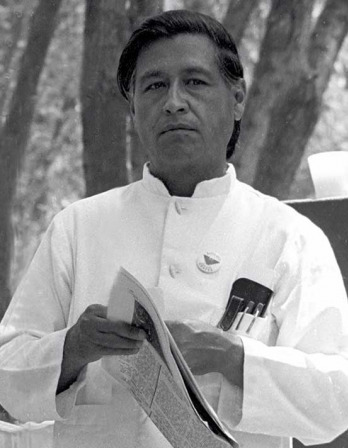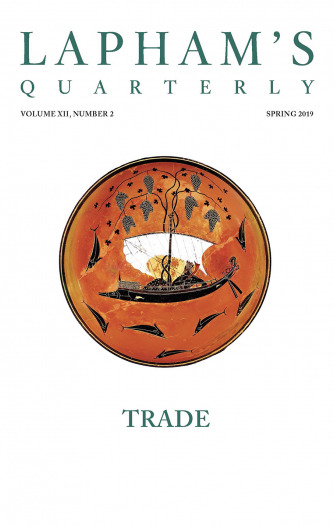Let us endeavor to disencumber manufactures of the objections that appear against them, the principal of which are the high rate of labor, which involves the price of provisions; the want of a sufficient number of hands on any terms; the scarcity and dearness of raw materials; want of skill in the business itself; and its unfavorable effects on the health of the people.
Machines ingeniously constructed will give us immense assistance. The cotton and silk manufacturers in Europe are possessed of some that are invaluable to them. One instance I have had precisely ascertained, which employs a few hundred women and children and performs the work of twelve thousand carders, spinners, and winders. They have been so curiously improved of late years as to weave the most complicated manufactures. In short, combinations of machines with fire and water have already performed much more than was formerly expected from them by the most visionary enthusiast on the subject. Perhaps I may be too sanguine, but they appear to me fraught with immense advantages to us and full of danger to the manufacturing nations of Europe. For should they continue to use and improve them, as they have heretofore done, their people must be driven to us for want of employment, and if, on the other hand, they should return to manual labor, we shall underwork them by these invaluable engines. We may certainly borrow some of their inventions, and others of the same nature we may strike out ourselves, for on the subject of mechanism, America may justly pride herself. Every combination of machinery may be expected from a country a native son of which, reaching this inestimable object at its highest point, has epitomized the motions of the spheres that roll throughout the universe.
The lovers of mankind, supported by experienced physicians and the opinions of enlightened politicians, have objected to manufactures as unfavorable to the health of the people. Giving to this humane and important consideration its full weight, it furnishes an equal argument against several other occupations by which we obtain our comforts and promote our agriculture. The painting business, for instance, reclaiming marshes, clearing swamps, the culture of rice and indigo, and some other employments are even more fatal to those who are engaged in them. But this objection is urged principally against carding, spinning, and weaving, which were formerly manual and sedentary occupations. Our plan is not to pursue those modes unless in cases particularly circumstanced, for we are sensible that our people must not be diverted from their farms. Horses, and the potent elements of fire and water, aided by the faculties of the human mind (except in a few healthful instances) are to be our daily laborers. After giving immediate relief to the industrious poor, these unhurtful means will be pursued and will procure us private wealth and national prosperity.
Emigration from Europe will also relieve and assist us. The blessings of civil and religious liberty in America and the oppressions of most foreign governments, the want of employment at home and the expectations of profit here, curiosity, domestic unhappiness, civil wars, and various other circumstances will bring many manufacturers to this asylum for mankind. Ours will be their industry, and what is of still more consequence, ours will be their skill. Interest and necessity, with such instructors, will teach us quickly. In the last century, the manufactures of France were next to none; they are now worth millions to her yearly. Those of England have been more improved within the last twelve years than in the preceding fifty. At the peace of 1762, the useful arts and manufactures were scarcely known in America. How great has been their progress since, unaided, undirected, and discouraged. Countenanced by your patronage and promoted by your assistance, what may they not be ere such another space of time shall elapse?
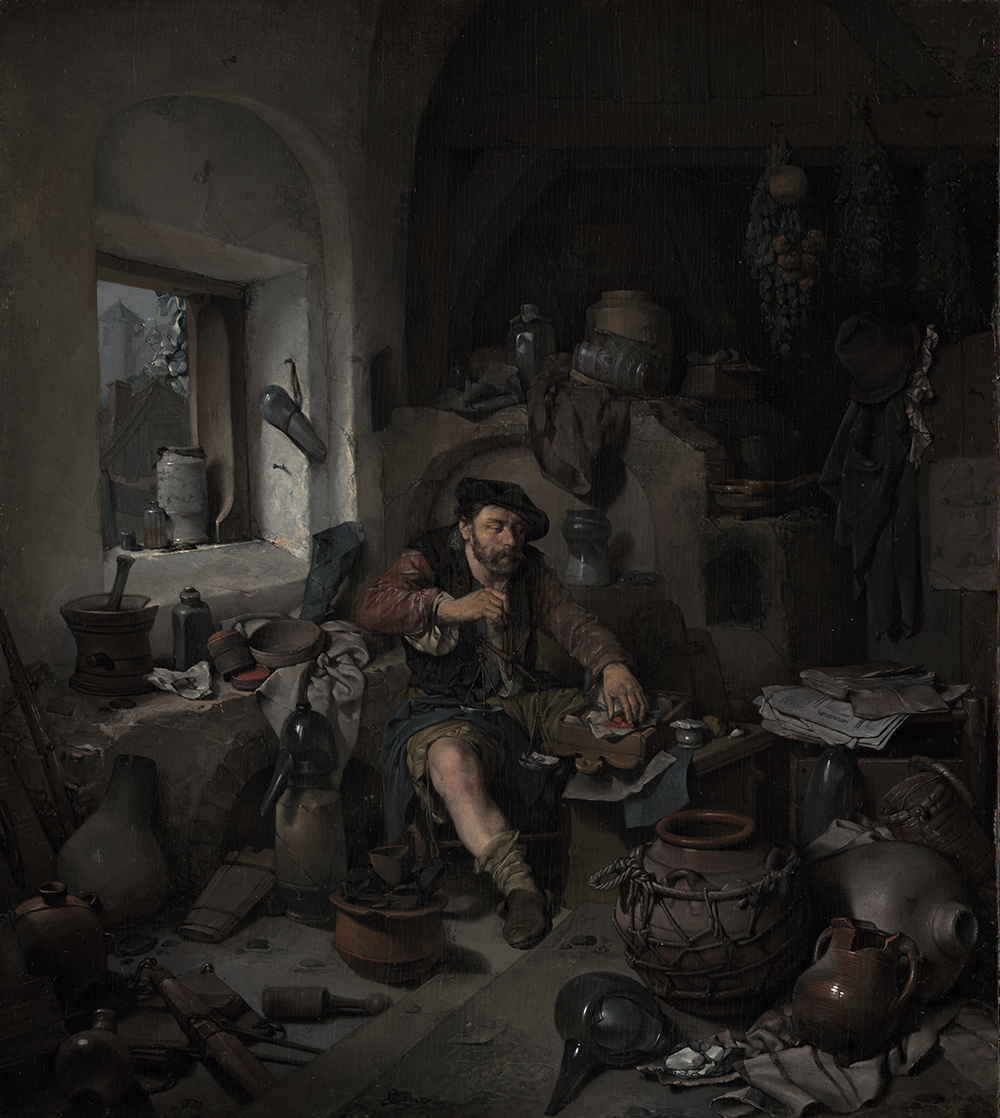
The Alchemist, by Cornelis Bega, 1663. The J. Paul Getty Museum, Los Angeles. Digital image courtesy the Getty’s Open Content Program.
We must carefully examine the conduct of other countries in order to possess ourselves of their methods of encouraging manufactories and pursue such of them as apply to our own situation, so far as it may be in our power. Exempting raw materials, dyestuffs, and certain implements for manufacturing from duty on importation is a very proper measure. Premiums for useful inventions and improvements, whether foreign or American, for the best experiments in any unknown matter and for the largest quantity of any valuable raw material must have an excellent effect. They would assist the efforts of industry and hold out the noble incentive of honorable distinction to merit and genius. The state might with great convenience enable an enlightened society, established for the purpose, to offer liberal rewards in land for a number of objects of this nature. Our funds of that kind are considerable and almost dormant. An unsettled tract of a thousand acres, as it may be paid for at this time, yields very little money to the state. By offering these premiums for useful inventions to any citizen of the union, or to any foreigner who would become a citizen, we might often acquire in the man a compensation for the land, independent of the merit which gave it to him. If he should be induced to settle among us with a family and property, it would be of more consequence to the state than all the purchase money.
It might answer a useful purpose if a committee of this society should have it in charge to visit every ship arriving with passengers from any foreign country, in order to inquire what persons they may have on board capable of constructing useful machines, qualified to carry on manufactures, or coming among us with a view to that kind of employment. It would be a great relief and encouragement to those friendless people in a land of strangers and would fix many among us whom little difficulties might incline to return.
From “An Address to an Assembly of the Friends of American Manufacturers.” Born in Philadelphia to a prosperous merchant family, Coxe joined his father’s firm in 1776 and, declaring himself to be “without party,” conducted trade with both American and British clients. The dealings led to his name appearing on a list of those suspected of treason. “I am, if permitted,” he said after the charges had been dropped, “likely to become a good American.” In 1787 he wrote a series of articles in Philadelphia’s Independent Gazetteer urging ratification of the Constitution and the following year was elected to the Continental Congress.
Back to Issue


